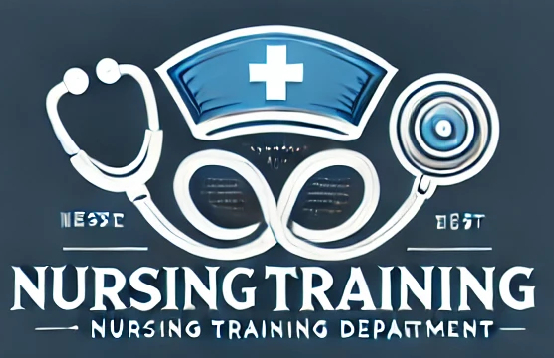
Department Training
The Nursing Training Department plays a pivotal role in healthcare institutions, focusing on the education and continuous professional development of nursing staff. Here's a detailed overview of what a typical Nursing Training Department involves:
Objectives
- Skill Development: To enhance the clinical skills of nurses, ensuring they are competent in the latest medical practices and technologies.
- Certification and Recertification: To provide and manage certifications for specialized nursing skills and ensure that nurses remain certified, especially in critical areas such as BLS (Basic Life Support) and ACLS (Advanced Cardiac Life Support).
- Regulatory Compliance: To ensure that training programs meet the standards and regulations set by healthcare authorities and accreditation bodies.
Functions
- Curriculum Development: The department develops training curricula that cover a broad range of nursing skills from basic care to advanced clinical procedures. The curriculum is regularly updated to incorporate the latest in medical research and technology.
- Continuous Education: It offers ongoing educational opportunities for nurses to learn about new treatments, drugs, and approaches to patient care. This could include workshops, seminars, and online courses.
- Orientation Programs: New staff members go through an orientation program organized by the department to familiarize them with hospital protocols, the specific needs of their units, and safety practices.
- Skill Assessment: Regular assessments are conducted to gauge the proficiency of nursing staff in various critical skills, ensuring high standards of patient care.
- Simulation Training: Many departments utilize simulation labs where nurses can practice clinical procedures in a controlled, risk-free environment, enhancing their competence and confidence without compromising patient safety.
Staff and Resources
- Experienced Educators: The department typically includes experienced nurse educators who possess a deep understanding of nursing practices and adult education principles.
- Technological Tools: Modern nursing training departments are equipped with the latest educational technology, including virtual reality (VR) and advanced patient simulators, to provide realistic and effective training experiences.
- Learning Management Systems (LMS): Many departments employ LMS platforms to deliver and track the progress of online courses and training modules, allowing for a flexible learning environment that accommodates the schedules of busy healthcare professionals.
Challenges and Trends
- Keeping Pace with Change: One of the biggest challenges is staying current with rapid advancements in medical procedures, technology, and regulations.
- Resource Allocation: Ensuring there are enough resources, both in terms of funding and personnel, to provide high-quality training.
- Adaptation to Digital Learning: The shift towards more digital and remote learning solutions requires constant adaptation and integration of new educational technologies.
Overall, the Nursing Training Department is essential for maintaining the excellence and readiness of nursing staff, directly impacting the quality of care provided in healthcare settings.



















